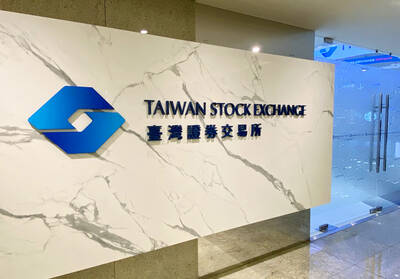Soaring crude-oil costs may eat into Chinese Petroleum Corp's (CPC,
"We will keep monitoring the movement of international crude oil prices and endure [the increased costs] as much as possible, until they can no longer be borne," CPC president Chen Bao-lang (陳寶郎) said yesterday in a phone interview.
Chen earlier vowed not to raise retail gasoline prices within one month of his inauguration as the state-run oil refiner's new president on July 29.
Skyrocketing crude oil prices have hurt the refiner by adding NT$2 billion in the last month alone for the purchase of 18 million barrels of crude oil. That extra expense will be reflected in the company's financial report for this month, Chen said.
Chen said that the company considered upward adjustment in retail prices as the cost of oil was soaring. However, since the state-run company is also charged with stabilizing commodity prices, it had to use profits made from refined oil exports and overseas exploration to pay for the increased costs.
For the first seven months of this year, CPC posted a record cumulative pre-tax profit of NT$14.93 billion -- 120.4 percent of its fiscal-year target of NT$12.4 billion.
"We are cautiously optimistic about reaching our targeted profits for this year," Chen said, "and this means that we cannot afford to lose money in the rest of months ahead."
The planned stoppage of the company's four to five refining factories nationwide for maintenance in the second half of this year may lower its exports of refined oil products and petrochemical products, undercutting its export revenues, he said.
Dilemma
The industry veteran conceded that CPC now faces the dilemma of either a controversial hike of retail oil prices amid declining international crude oil prices, or continuing to bear the increased purchasing costs.
Prices of light sweet crude oil futures hit a price of US$49.40 a barrel on Aug. 20 on the New York Mercantile Exchange, its highest ever since the oil futures contract began in 1983.
Prices of the crude oil for delivery in October are on the decline now, having closed at US$43.99 per barrel on Friday.
"The reasonable price for West Texas Intermediate crude oil should fall between US$27 and US$35 a barrel in the future," the Ministry of Economic Affairs' Bureau of Energy said in a report last week.
The assessment, which was made following a symposium last week in Taipei, indicated that the global oil supply remains stable. The world's aggregate daily oil supply of 82.41 million barrels is more than enough to fulfill the world's daily demands of 81.99 million barrels, it added. The symposium was attended by several academics and representatives from major oil companies.
Higher oil prices have a limited impact on Taiwan's economy, according to the assessment. The four hikes in retail gasoline prices lifted the nation's commodity prices by 0.61 percent and slowed down economic growth by 0.27 percent, it said.

Taiwan Semiconductor Manufacturing Co (TSMC, 台積電) secured a record 70.2 percent share of the global foundry business in the second quarter, up from 67.6 percent the previous quarter, and continued widening its lead over second-placed Samsung Electronics Co, TrendForce Corp (集邦科技) said on Monday. TSMC posted US$30.24 billion in sales in the April-to-June period, up 18.5 percent from the previous quarter, driven by major smartphone customers entering their ramp-up cycle and robust demand for artificial intelligence chips, laptops and PCs, which boosted wafer shipments and average selling prices, TrendForce said in a report. Samsung’s sales also grew in the second quarter, up

LIMITED IMPACT: Investor confidence was likely sustained by its relatively small exposure to the Chinese market, as only less advanced chips are made in Nanjing Taiwan Semiconductor Manufacturing Co (TSMC, 台積電) saw its stock price close steady yesterday in a sign that the loss of the validated end user (VEU) status for its Nanjing, China, fab should have a mild impact on the world’s biggest contract chipmaker financially and technologically. Media reports about the waiver loss sent TSMC down 1.29 percent during the early trading session yesterday, but the stock soon regained strength and ended at NT$1,160, unchanged from Tuesday. Investors’ confidence in TSMC was likely built on its relatively small exposure to the Chinese market, as Chinese customers contributed about 9 percent to TSMC’s revenue last

Taiwan and Japan will kick off a series of cross border listings of exchange-traded funds (ETFs) this month, a milestone for the internationalization of the local ETF market, the Taiwan Stock Exchange (TWSE) said Wednesday. In a statement, the TWSE said the cross border ETF listings between Taiwan and Japan are expected to boost the local capital market’s visibility internationally and serve as a key for Taiwan becoming an asset management hub in the region. An ETF, a pooled investment security that is traded like an individual stock, can be tracked from the price of a single stock to a large and

Despite global geopolitical uncertainties and macroeconomic volatility, DBS Bank Taiwan (星展台灣) yesterday reported that its first-half revenue rose 10 percent year-on-year to a record NT$16.5 billion (US$537.8 million), while net profit surged 65 percent to an unprecedented NT$4.4 billion. The nation’s largest foreign bank made the announcement on the second anniversary of its integration with Citibank Taiwan Ltd’s (花旗台灣) consumer banking business. “Taiwan is a key market for DBS. Over the years, we have consistently demonstrated our commitment to deepening our presence in Taiwan, not only via continued investment to support franchise growth, but also through a series of bolt-on acquisitions,” DBS